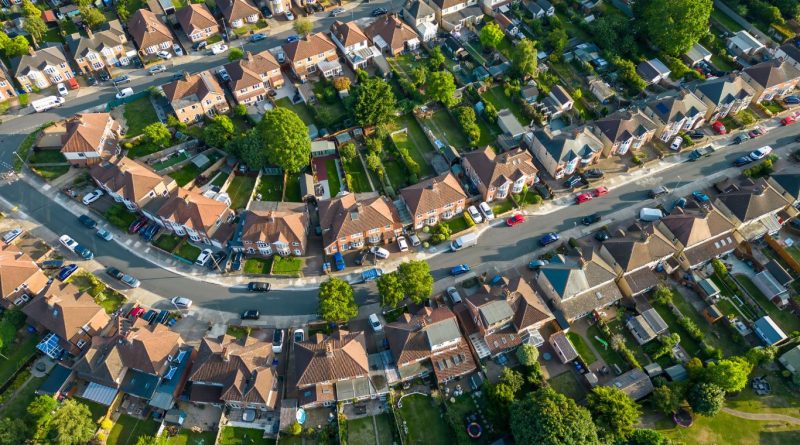Top 10 Emerging Trends in Urban Development Across the UK
Urban development in the UK is undergoing a significant transformation, shaped by a variety of factors such as population growth, climate change, and technological advancements. From creating walkable mixed-use neighbourhoods to integrating smart technologies, the future of UK cities lies in balancing growth with sustainability. Let’s explore the top 10 trends shaping urban development across the UK.
1. The Rise of Sustainable Urban Planning
As climate change impacts grow more severe, sustainable urban planning is now at the forefront of development efforts. Urban planners are incorporating green infrastructure—such as parks and eco-friendly buildings—to mitigate environmental effects while improving the quality of life for residents. This approach also includes green building practices and enhancing energy efficiency to reduce emissions and create eco-friendly cities.
Governments and private developers are focusing on constructing carbon-neutral buildings and reducing urban heat islands by increasing green space. These practices are not only essential for environmental health but also for making urban areas more appealing and healthier places to live.
2. Mixed-Use Development: Live, Work, and Play in One Place
The trend towards mixed-use development is becoming increasingly popular across the UK. Mixed-use developments combine residential, commercial, and recreational areas in close proximity, creating self-sustaining communities where people can live, work, and relax without needing to commute long distances.
These walkable neighbourhoods reduce reliance on cars, foster social interactions, and increase local business activity. Cities like London, Manchester, and Birmingham are leading the way in creating these vibrant, integrated spaces, which are not only convenient but also help in reducing carbon footprints
3. Incorporating Smart City Technologies
Smart cities are no longer just a concept; they are becoming a reality in several cities. By leveraging the Internet of Things (IoT), predictive analytics, and data-driven urban planning, cities can now improve public services, reduce congestion, and optimise energy use. From smart traffic lights to urban air-quality monitoring, data-driven solutions are providing city planners with the tools they need to build more efficient and sustainable urban areas.
With ongoing investments in 5G infrastructure, cities like Bristol and London are setting the pace in smart city innovation, helping streamline everything from waste management to public transport
4. Adapting to Population Growth with Strategic Housing
UK cities are witnessing significant population growth, especially in urban conurbations like Manchester, Birmingham, and London. Addressing the housing shortage has become a pressing issue, and urban planners are focusing on creating affordable, well-connected homes in areas that can sustain long-term growth.
By strategically placing new developments near transportation hubs and existing infrastructure, planners aim to reduce sprawl and encourage the use of public transport.
5. Climate-Resilient Infrastructure
Climate change resilience is a major consideration in the future of urban development. UK planners are designing infrastructure that can withstand extreme weather events such as flooding, heatwaves, and storms.
Developers are increasingly using flood-resistant designs and integrating natural flood defences into urban areas to minimise damage. Resilience strategies also include using permeable materials to reduce water runoff, building flood defences, and introducing heat-reducing green roofs and walls.
6. Transportation and Mobility Innovations
Transportation is a key factor in the success of any urban area. Electric vehicles (EVs), cycling networks, and pedestrian-friendly streets are becoming the norm, as cities aim to reduce congestion and lower emissions.
London’s ultra-low emission zones (ULEZ) are a prime example of how cities are leading the way in sustainable transport, while new infrastructure is being developed to encourage cycling and walking over car use.
7. Focus on Healthier Communities
Urban planning is increasingly focusing on health and well-being, with planners prioritising the creation of green spaces, walkable neighbourhoods, and recreational areas. Cities are recognising the importance of promoting physical activity and mental well-being by making urban areas more accessible and conducive to healthier lifestyles.
The rise of pedestrian-friendly urban environments encourages residents to walk or cycle more, fostering healthier lifestyles.
8. Decarbonisation and Net-Zero Goals
As the UK strives to meet its ambitious net-zero targets, urban development is being shaped by decarbonisation strategies. This includes retrofitting old buildings to make them energy-efficient, developing carbon-neutral buildings, and integrating renewable energy sources into urban infrastructure.
Many cities are now adopting policies that promote the use of renewable energy and energy-efficient technologies, particularly in new developments.
9. Revitalising Post-Industrial Areas
The regeneration of post-industrial areas has become a key trend in UK urban development. Former industrial sites in cities are being transformed into vibrant, mixed-use spaces that blend residential, commercial, and cultural elements.
This revitalisation not only breathes new life into these areas but also preserves historical landmarks and provides opportunities for economic growth. Such initiatives help rejuvenate neglected areas, turning them into thriving communities
10. Affordable Housing and Social Inclusion
Affordable housing remains a critical issue for UK cities. Developers and urban planners are increasingly focused on creating inclusive communities where housing is affordable for a wide range of income levels. In London and beyond, local councils are working to ensure that new developments include affordable housing quotas, while also investing in social infrastructure like schools, healthcare facilities, and public transport.
Balancing affordability with high-quality living spaces is essential for fostering social inclusion and ensuring that cities remain accessible to all.
The future of urban development in the UK is focused on creating sustainable, inclusive, and technologically advanced cities that can accommodate growing populations while mitigating the impacts of climate change.
